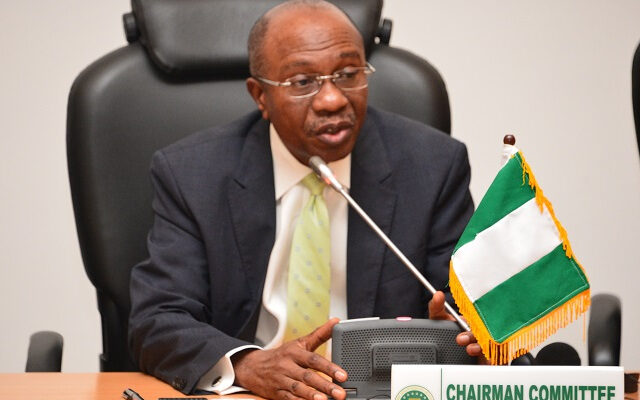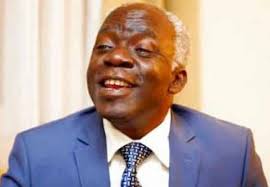Business and Brands
CEOs blame Naira shortages, elections for widespread increase in operating expenses

Nigerian businesses are reporting a widespread increase in operating expenses driven by the 2023 election, cash shortages, and rising inflation that has taken its toll on their operations.
The Nigerian economy is experiencing galloping inflation which arose out of a combination of higher energy prices, an increase in the money supply, and exchange rate depreciation. Some companies have also reported the impact of the cash scarcity brought about by the introduction of new naira notes as a contributing factor.
A Nairametrics review of the first quarter 2023 income statement of 24 of the NSE 30 companies reveals a total operating expense of about N441.8 billion compared to N386.6 billion for the same period in 2022. Input costs, otherwise called the cost of sale, also rose 3.9% to N1.154 trillion.
FInance costs also rose from N92.9 billion to about N118 billion as interest rates rise in reaction to higher central bank monetary policy rates. The increase also ate into margins.
The companies we reviewed
Some of the companies on our list include Dangote Cement, MTN, Nestle, Lafarge, BUA Foods, BUA Cement, Unilever, and Nigeria Breweries. Others include Notore, Seplat, Total, Fidson, May & Baker, GSK, Okomu Oil, and Livestock Feed. We also reviewed the financial statements of Dangote Sugar, NASCON, Cadbury, CAPL, Julius Berger, Beta Glass, Transcorp, and UACN.
These companies cut across manufacturing, construction, FMCGs, Healthcare, Agriculture, and Conglomerates. Nairametrics considers them bellwethers for the state of the economy from the perspective of the private sector.
Operating expenses include selling and distribution expenses as well as admin and general expenses. The first quarter of 2023 was particularly poignant, especially due to a combination of economic pressures that were completely out of the control of companies.
During the quarter, Nigerians suffered through an excruciating currency crisis that affected trade nationwide. The general elections in February and March also affected the flow of business across the country as Nigerians worried about post-election violence.
In 2022, most Nigerian companies were able to address cost pressures by raising prices and pushing volumes. However, the cash shortages and election campaigns slowed down their ability to find ways to absorb the cost and retain profit margins.
What the CEOs are saying
Dangote Cement, Africa’s market Cement leader, reported marketing and distribution expenses of N68.7 billion, up from N60.6 billion a year earlier (N41 billion in 2021). Admin expenses also rose from N16.9 billion in the first quarter of 2022 to N18.6 billion in 2023. The company also reported significant margin drops even as revenues fell for the first time in years.
The company CEO, Arvind Pathak, cited elections as a major factor that hit their revenue growth during the quarter.
- “In Nigeria, the cash crunch coupled with the uncertainty around the general elections led to a slowdown in key private and public infrastructure investments. Consequently, our Nigerian operations recorded a drop in volume, resulting in a 13.5% decline in Group volume.”
The company also added:
- “The uncertainty and sentiments around the Nigerian elections stalled economic activities, with many private and public projects on hold until the outcome of the elections. Collectively, this negatively impacted the volume of cement sales and limited our ability to maximize production during the period.”
They also cited the naira scarcity and the increase in diesel prices as major cost drivers during the quarter.
- “Our Nigerian operations sold 3.6Mt of cement in the first quarter of 2023, down 24.6% from the 4.8Mt sold in Q1 2022. The decline in volume was due to cash crunch and negative sentiments around the elections. The cash unavailability impacted construction workers’ daily wages and retailers’ ability to pay for cement in cash. The increased prices of Automotive Gas Oil (AGO) resulted in a 7.9% year-on-year increase in selling and distribution costs.”
MTN, Nigeria’s largest telecom, also cited the naira scarcity, elections, and inflation as major cost pressures during the quarter. The company’s marketing and distribution expenses rose from N21.7 billion to N36.1 billion in 2023. Admin expenses also rose from N11.3 billion to N13.5 billion in the first quarter of 2023.
MTN Nigeria MD/CEO, Karl Toriola, also commented.
- “We continued to experience headwinds in our operating environment in the first quarter of 2023. The impacts of the ongoing global macroeconomic and geopolitical developments on energy, food, and general inflation were exacerbated locally by petrol and cash shortages experienced during the period. This placed additional pressure on economic activity, consumers, and businesses. The private sector experienced the deepest contraction in March 2023 since the recovery from COVID. In addition, supply chains were compounded by exchange rate volatility and the availability of foreign currency needed for capex.”
MTN also reported a lower operating profit margin in the quarter under review, eking out N36 for N100 of revenue compared to N38 in the same period in 2022. They also reported a lower profit margin in the first quarter of 2023.
Another mega Nigerian company, Nigeria Breweries, also complained about cash shortages and elections as a major drawback on margins. The company reported operating expenses of N42 billion compared to N39.5 billion in the same period in 2022.
Margins also dropped across the board as the cash shortages affected the company’s chances of higher sales to absorb some of the cost pressures.
- “The operating environment during the period under review was very challenging for businesses. The impact of the cash crunch, which led to a near collapse of payment channels, as well as the security and safety uncertainties associated with the general elections, created disruptions in the economy. These were in addition to the continuing headwinds of inflationary pressure with its impact on purchasing power, input cost, and operating expenses.”
BUA Foods, the largest local food manufacturing company quoted on the stock exchange, also cited cash shortages and elections as a major challenges they had to face. The company MD/CEO Engr. Ayodele Abioye also commented.
- “BUA Foods Plc continues to deliver strong performance across key financial metrics despite the business climate headwinds characterized in Q1 by the economic impact of the general elections, high food inflation, and shortage of cash in circulation following the currency redesign policy. We continue to leverage our unique strategic business model to minimize the impact. We are committed to remaining the most profitable business in our sector while creating long-term values for our stakeholders as we expand our frontiers.”
Lafarge, another major cement maker, also released statements citing the cash shortages and elections as major factors that affected operating costs. Khaled El Dokani, the CEO of Lafarge Africa, also stated:
- “Q1 2023 was a challenging first quarter due to the economic impact of the general elections and shortage of cash in circulation following the currency redesign policy. These constrained our financial performance.”
Lafarge’s operating expenses as a percentage of its gross profits were 52% compared to 47.6% a year earlier.
Outlook for 2023
As Nigerian businesses move beyond the challenging first quarter of 2023, the outlook for the rest of the year remains uncertain. The impact of inflation, cash shortages, and election uncertainties is expected to persist, as these factors are largely beyond the control of companies.
As Nigerian businesses brace themselves for the rest of the year, the prospect of a new government coming into power can introduce more uncertainties and headwinds. A new government typically takes time to settle into its role, and during this period, policy decisions and regulations may be subject to change, creating additional challenges for businesses.
The delay in decision-making and policy implementation can cause a slowdown in economic activities, affecting the flow of business across the country. In addition, new regulations or policies may have unintended consequences for businesses, which may require time and resources to adjust to.
What businesses are doing to mitigate the challenges
Businesses are adopting several measures to mitigate the impact of these challenges.
- One strategy is to continue to find ways to optimize costs without sacrificing quality, through operational efficiencies and strategic procurement.
- Another approach is a focus on customer needs and preferences, by offering products and services that meet changing consumer demands.
- Additionally, businesses also leverage technology and innovation to improve their processes and enhance their competitiveness.
- Another strategy is engaging with policymakers and relevant stakeholders, to understand their plans and priorities, and to provide input and feedback where appropriate.


 Entertainment23 hours ago
Entertainment23 hours agoPrince Harry renounces British residency as he declares US his ‘new country’

 Top Stories23 hours ago
Top Stories23 hours agoWe will no longer allow obstruction of our operations after Ododo interfered in Yahaya Bello’s attempted arrest – EFCC

 Top Stories17 hours ago
Top Stories17 hours agoBreaking: Police Apologizes Over Reports Of DJ Switch’s Arrest

 Politics23 hours ago
Politics23 hours agoFIRS Chairman Releases Statement As Tinubu Inaugurates National Single Window Committee

 News16 hours ago
News16 hours agoHeritage Bank In Crisis…Shut Down Over Mass Sack, Undue Process

 News22 hours ago
News22 hours agoIyalode Line Visits Olubadan Designate

 Top Stories23 hours ago
Top Stories23 hours agoEFCC: Why Yahaya Bello Can’t Evade Arrest, Prosecution — Falana

 News21 hours ago
News21 hours agoBlack Market Dollar (USD) To Naira (NGN) Exchange Rate Today 18th April 2024







